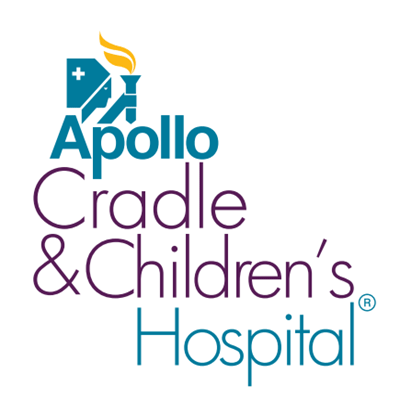The ovaries are a pair of small, almond-shaped organs located in the lower abdomen of female mammals, including humans. They are part of the female reproductive system and are responsible for producing and releasing eggs (ova) for fertilisation. The ovaries also produce hormones such as oestrogen and progesterone, which play important roles in regulating the menstrual cycle and maintaining pregnancy. However, several conditions can affect the ovaries, causing a range of ovarian issues.
What causes an Ovarian Issue?
Several factors can cause ovarian issues, including genetics, hormonal imbalances, and underlying medical conditions. Polycystic Ovary Syndrome (PCOS) is a common cause of ovarian issues, affecting up to 10% of women worldwide. Other conditions that can cause ovarian issues include endometriosis, ovarian cysts, and ovarian cancer.
What does an ovarian problem look like?
The symptoms of ovarian issues vary depending on the underlying condition. However, common symptoms include pelvic pain or discomfort, irregular menstrual cycles, heavy bleeding, bloating, and abdominal swelling. Women with ovarian issues may also experience pain during intercourse, difficulty getting pregnant, and frequent urination.
Detecting Ovarian Issues
Diagnosing ovarian issues involves a combination of medical history, physical examination, and diagnostic tests. The doctor may perform a pelvic exam, blood tests, and imaging tests like an ultrasound or CT scan to diagnose ovarian issues.
Here are some prominent ovarian issues and their treatments:
Ovarian cysts
Ovarian cysts are fluid-filled sacs that can form in or on the ovaries. They can cause pain and discomfort in the lower abdomen, bloating, and irregular periods. Treatment for ovarian cysts depends on the type, size, and symptoms. In most cases, they resolve on their own, but larger cysts may require surgery.
Polycystic ovary syndrome (PCOS)
PCOS is a hormonal disorder that affects the ovaries and causes irregular periods, acne, weight gain, and excess hair growth. The exact cause of PCOS is unknown, but it is believed to be related to insulin resistance. Treatment for PCOS includes lifestyle changes, such as a healthy diet and exercise, and medications such as birth control pills and metformin.
Ovarian cancer
Ovarian cancer is a serious condition that occurs when abnormal cells grow in the ovaries. Symptoms include abdominal pain, bloating, and a feeling of fullness. Treatment for ovarian cancer includes surgery, chemotherapy, and radiation therapy.
Ovarian torsion
Ovarian torsion occurs when the ovary twists on its blood supply, causing severe pain and sometimes cutting off the blood supply to the ovary. Treatment for ovarian torsion includes surgery to untwist the ovary and prevent further damage.
Premature ovarian failure
Premature ovarian failure occurs when the ovaries stop functioning before the age of 40. This can cause infertility and early menopause. Treatment for premature ovarian failure includes hormone replacement therapy and fertility treatments such as in vitro fertilisation (IVF).
Treatment for Ovarian Issues
The treatment for ovarian issues depends on the underlying condition. For example, hormonal imbalances like PCOS may require medication like birth control pills, while ovarian cysts may require surgical removal. In some cases, surgery to remove one or both ovaries may be necessary to treat ovarian cancer.
Preventing Ovarian Issues
While some ovarian issues are genetic or cannot be prevented, certain lifestyle changes can reduce the risk of developing ovarian issues. Maintaining a healthy weight, getting regular exercise, and eating a balanced diet can help prevent hormonal imbalances and reduce the risk of developing ovarian issues like PCOS.
Conclusion
Ovarian issues can be caused by various factors, and the symptoms can range from mild to severe. It's essential to seek medical attention if you experience any symptoms associated with ovarian issues to get a proper diagnosis and treatment. Preventative measures like maintaining a healthy lifestyle can also help reduce the risk of developing ovarian issues.
Request an appointment at Apollo Cradle, Bengaluru - Brookefield. Call 1860-500-4424 to book an appointment.
Endometriosis is a condition in which tissue similar to the lining of the uterus grows outside of the uterus, such as on the ovaries or fallopian tubes. It can cause pain, heavy bleeding during periods, and fertility problems.
There is currently no surefire way to prevent ovarian cancer, but some risk factors, such as using oral contraceptives and having a family history of the disease, can be addressed to lower the risk.
PCOS is typically diagnosed based on symptoms, a physical exam, and blood tests to check hormone levels. An ultrasound may also be used to look for cysts on the ovaries.
Treatment for endometriosis may include pain medication, hormone therapy, or surgery to remove the affected tissue. Fertility treatments may also be necessary for women who want to become pregnant.
The symptoms of ovarian torsion include sudden and severe abdominal pain, nausea, vomiting, and a fever. It is important to seek medical attention immediately if you experience these symptoms.

 95 Patient Satisfaction Score
95 Patient Satisfaction Score






